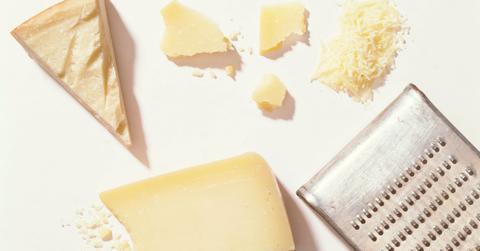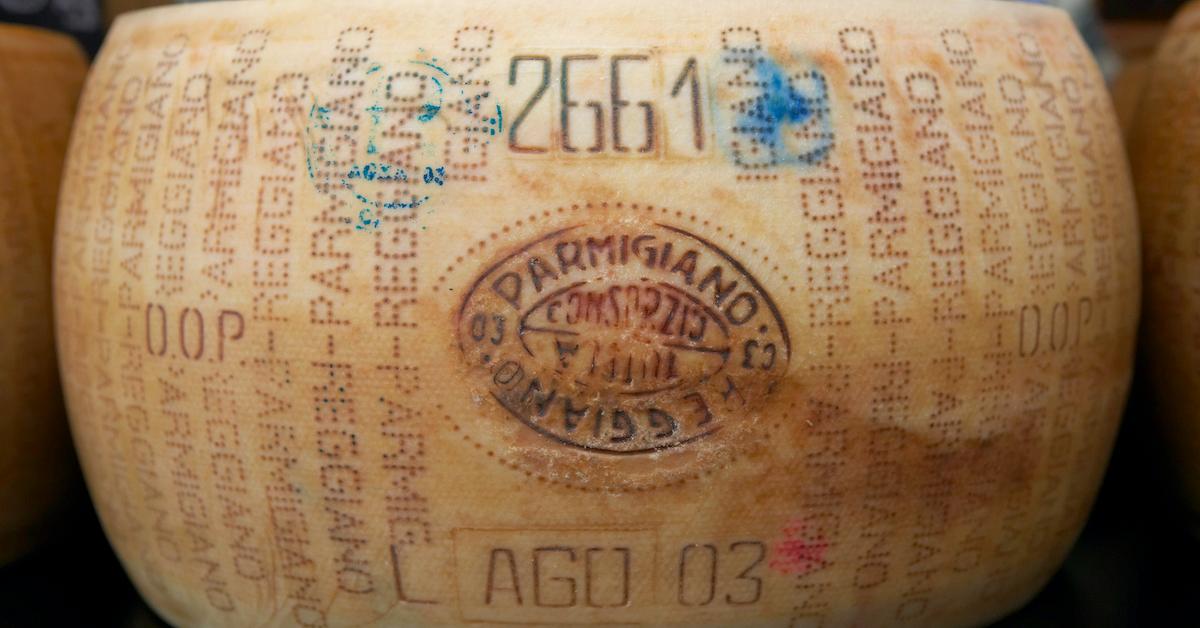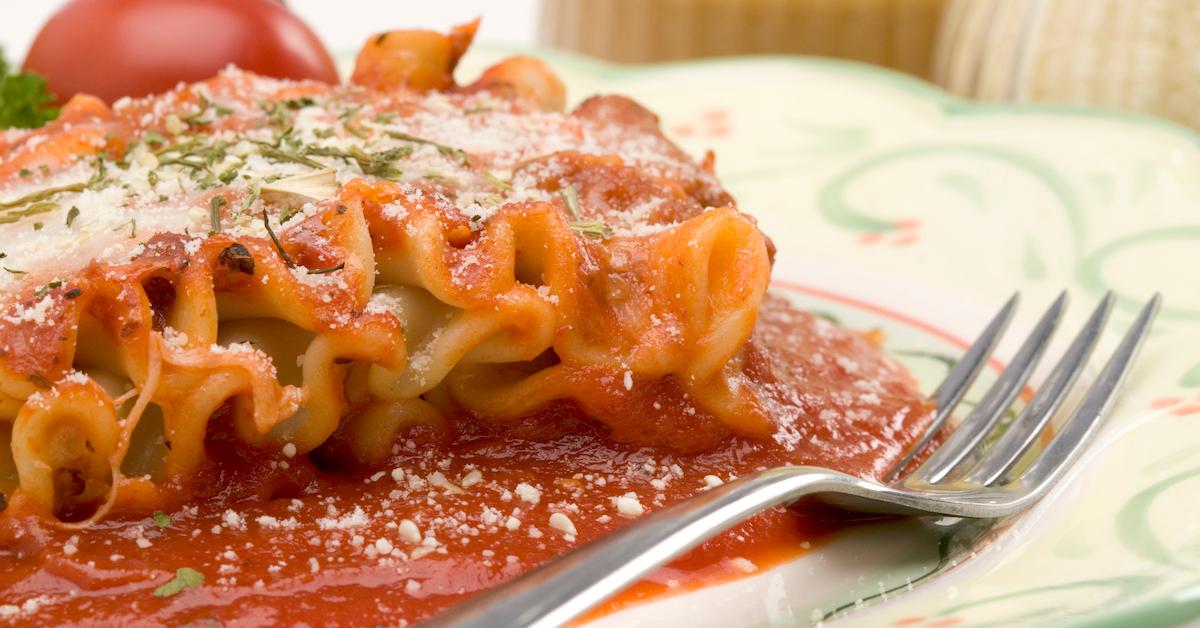Not All Parmesan Cheese Is Animal-Free — Behind the Vegetarian Label
Updated Jan. 26 2023, 12:21 p.m. ET

As nut-based cheese continues to gain popularity in the vast world of food, the beloved charcuterie staple has become more widely accessible to former dairy enthusiasts who decided to bite the bullet, and go completely vegan. And while most traditional dairy-based cheeses are technically vegetarian, predominantly made from homogenized milk, some varieties aren't animal-free.
Some varieties like parm aren't always even vegetarian. But why?
The ingredients in Parmesan cheese vary by producer, making some varieties veg-friendly and others not-so-friendly. Fellow vegetarians — this may be a total game-changer for next pasta night. Keep reading for everything you need to know about the widely beloved cheese.

Here's why some Parmesan cheese isn't *actually* vegetarian:
Although cheese is often the one thing that holds many vegetarians back from gong completely vegan, it turns out not all cheese is actually vegetarian — including Parmesan. According to Vegetatio, there's a step in the curdling process that sometimes calls for an ingredient called rennet, comes from the intestines of goats and baby calves. It contains an enzyme called chymosin, which helps the cheese coagulate, and unfortunately, it requires the baby calf to be killed.
To make things just a little bit worse, excess whey often comes from the Parmesan production process, according to Metro UK. When this happens, farmers will sometimes feed the surplus to pigs, who are then killed, and made into Italy's famously cured Parma ham. My utmost condolences, eggplant Parm enthusiasts — you'll definitely do a little bit of research before embarking on your next grocery haul.

Do other types of cheese use this animal-based ingredient?
In Europe, anything that dons the label "Parmigiano-Reggiano" does — in fact — contain rennet, and vegetarian Parmesan is generally given other descriptive names, like "Italian hard cheese." In the U.S., some rennet is actually obtained from fungus, which is listed as "microbial rennet." Also, any U.S. Parmesan with "romano" in the title likely isn't vegetarian, according to Business Insider, but you can probably check the ingredients or call the manufacturer to make sure.
Unfortunately, Parmesan isn't the only type of cheese that uses the animal-based ingredient. Certain types of gorgonzola, Pecorino Romano, Grana Padano, Camembert, Vacherin, Emmenthaler, Gruyère, and Manchego often use rennet in the coagulation process, as well. Again — if being completely free of animal-based products is important to you, we strongly suggest double-checking with the manufacturer, or seeking out a verified vegetarian brand, before diving headfirst into that delectable shaker.
Luckily, you won't have to search too far and wide to find a veg-friendly version of these cheeses — in fact, major brands such as Kraft claim to use microbial enzymes (aka fungus) in lieu of the questionable ingredient. Anything labeled as "cheese product" also strays from using rennet, as it isn't considered "real cheese." Bottom line? Do a little research, consider opting for a vegan variety, or simply find an animal-free brand you like — we promise your pasta nights aren't completely canceled.
This article, originally published on April 27, has been updated.